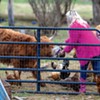Published July 10, 2013 at 7:06 p.m.
The first installment of this feature suggested that the settlement south of the mouth of the Winooski River came to be called Burlington because of a clerical error.
This week, we’re tracing the origins of that river’s name. And this etymological investigation appears to lead to a marketing ploy by 18th-century real estate speculators.
“The river’s name has caused more dispute than any other place name in Vermont,” historian Esther Munroe Swift wrote in her 1977 book Vermont Place Names. Disagreements begin with how to render into English the Algonquian (or Abenaki) word for the 95-mile-long river that rises in Cabot and empties into Lake Champlain.
To Swift, it’s “Winooskitook” — which, she tells us, should be pronounced “Weenooskee.” Frederick Wiseman, an Abenaki scholar, transliterates the name as “Winosik” in an essay included in The Mills at Winooski Falls, edited by Laura Krawitt. And local historian Vincent Feeney goes with “Winoskitegw” in his 2002 book The Great Falls on the Onion River: A History of Winooski, Vermont.
These and other historians do agree — more or less — on the English definition of the Abenaki word. Its root means “onion” or “leek,” they all say, noting that the tangy bulb once flourished in wild profusion along the river’s banks.
Until the last quarter of the 18th century, the inhabitants of Vermont were apparently content to refer to the river by some variant of “Winooski.” French settlers respected the name that had been used by the original Vermonters. Francophones didn’t call it “Oignon”; their early maps of Vermont tag the river as “Ouinouski.”
By the 1770s, however, it had come to be commonly known as the “Onion River.” Early Vermont’s dominant clan engineered the name change, Swift suggests.
As Feeney notes in his book, which was published by the Winooski Historical Society, the small settlement alongside the river’s falls had emerged around that time as “the center of the Allen family’s vast real estate empire.”
In addition to battling Brits and “Yorkers,” Ethan Allen and his bros specialized in flipping properties to make quick profits. And, according to Swift, the wily Allen boys fully understood what’s in a name.
“Since the Allens were buying land for resale,” she writes in Vermont Place Names, “they would not have wanted to use any name that might remind potential buyers that the French and Indians were still romping around in New England.”
“Winooski” wouldn’t sell, but “Onion” would, the Allens reckoned. And so they decided to call their real estate agency the Onion River Land Company.
Feeney offers a more generalized account of the switch. The English viewed both the French and the Abenaki with a suspicion that had cultural dimensions, he notes. Anglophones in Vermont were hence keen on “eliminating Abenaki place names,” Feeney writes.
“Onion River” remained the prevailing designation for the 75 years or so after Vermont became first an independent republic and, later, a state.
Around 1850, however, “Winooski” returned to fashion, Swift relates, and suggests the reversion resulted from a PR campaign motivated by embarrassment over the English name. “By the mid-19th century,” she writes, “some residents of Vermont’s capital city were fretting over the fact that their community was known as Montpelier-on-the-Onion.”
That handle may even have brought tears to their eyes.
Feeney’s explanation for the comeback of “Winooski” isn’t as colorful. He attributes it to “romantic nostalgia about the region’s Indian past.”
The political and cultural connotations having faded, the two names are now used pretty much interchangeably. There’s Onion River Sports, for example, as well as the Onion River Co-op, Onion River Chiropractic and Onion River Pottery (which, oddly, is located in Middlebury). The city of Winooski, of course, bears the same name as the river, as do numerous businesses based in Burlington’s neighboring burg.
It turns out that ambivalence over this pair of names extended well beyond Vermont’s borders. James Stone and other Vermonters who moved to Wisconsin in the 19th century gave the name “Winooski” to the town where they settled. But, apparently unwilling to choose sides, they called the river that flows through the town “the Onion.”
More By This Author
Comments
Showing 1-1 of 1
Comments are closed.
From 2014-2020, Seven Days allowed readers to comment on all stories posted on our website. While we've appreciated the suggestions and insights, right now Seven Days is prioritizing our core mission — producing high-quality, responsible local journalism — over moderating online debates between readers.
To criticize, correct or praise our reporting, please send us a letter to the editor or send us a tip. We’ll check it out and report the results.
Online comments may return when we have better tech tools for managing them. Thanks for reading.















































